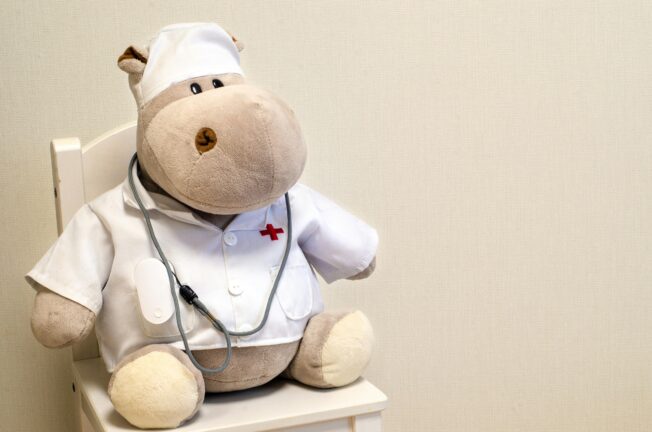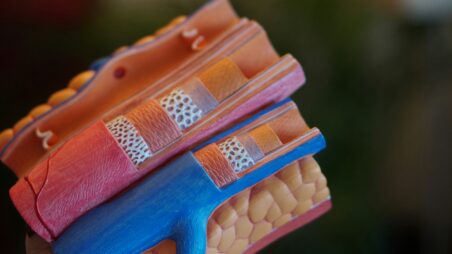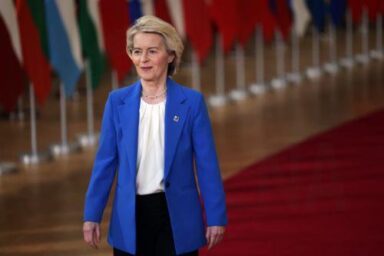The European Commission has singled out the absence of cardiovascular screening in children and youth as a “new, even stronger point” in its consultation on the EU Cardiovascular Health Plan. The issue is now emerging as a key political test, with both patient groups and lawmakers urging Brussels to act.
Marianne Takki, head of unit for disease prevention and health promotion at DG SANTE, presented the preliminary findings during a stakeholder webinar. The consultation, which ran for five weeks and closed on September 17, drew 677 responses.
“First of all, it seems that the call for evidence reaffirms our initial planning and thinking that those key areas that are important also for stakeholders are prevention, early detection and treatment and care,” she said. “On health inequalities, there was also a point, a new point, even a more strong point on looking at children and youth which don’t have cardiovascular health screening at the moment in many countries.”
On health inequalities, there was a new point, even a more strong point on looking at children and youth which don’t have cardiovascular health screening at the moment in many countries. – Marianne Takki, head of unit for disease prevention and health promotion, DG SANTE, European Commission
Prevention and early detection reaffirmed
The findings confirmed much of the Commission’s original blueprint. Prevention remains the most effective yet underused tool. Around 75 per cent of cardiovascular diseases can be avoided through lifestyle changes, but only about 3 per cent of EU health budgets go to prevention.
Respondents called for stronger action on food, physical activity, and alcohol and tobacco consumption. Many pressed for regulatory measures to make healthy choices more affordable and accessible.
You might be interested
Early detection also drew strong support. Stakeholders backed systematic cardiovascular health checks across age groups and called for greater use of digital tools, artificial intelligence and genetic risk screening.
Childhood screening moves to the fore
One issue, however, broke new ground. Stakeholders and lawmakers warned that Europe lacks systematic cardiovascular screening for children and adolescents. Takki called it a “new point, even a more strong point” in the consultation.
FH Europe said detection should start in the earliest years. “When we say early, we are advocating for the first decade in life,” said Magda Daccord, pointing to familial hypercholesterolemia (FH) and elevated lipoprotein(a) as key inherited risk factors. “Early screening helps already in childhood promote healthy behaviours,” she added, while warning against genetic discrimination.
Lawmakers picked up the same theme in Parliament last week in a meeting on cardiovascular prevention. Tomislav Sokol (EPP/HRV) said screening must be “at the core of the plan.” “Screenings as one of the best public health measures can play a big role,” he argued.
Romana Jerković, Parliament’s rapporteur for the Cardiovascular Health Plan, stressed that early screening is both a political and economic opportunity. “We cannot afford to leave anyone behind, not the children who deserve to grow up healthy,” she said. She pointed to FH and Lp(a) as silent genetic conditions often missed until too late.
“Screening and early detection are crucial … every euro spent on early detection saves money in avoided hospitalisations, surgeries, and lifelong therapies for advanced heart disease.”
Ms Jerković noted that Croatia has already rolled out paediatric screening for FH. For her, it proves that political will and the right tools can move prevention from aspiration to practice.
Screenings as one of the best public measures can play a big role. – MEP Tomislav Sokol (EPP/HRV)
Political stakes
The political push reflects a wider debate about funding and EU priorities. Cardiovascular disease is the leading killer in Europe, causing almost two million deaths each year. Yet it has never had a dedicated EU plan, unlike cancer.
Mr Sokol argued that a stand-alone plan is essential to create visibility, objectives, and benchmarks. He pointed to the European Cancer Plan, which came with €4bn in funding. “If you want something to be a priority, then you need to have it as a special plan,” he said.
But the budget backdrop looks shaky. The Commission’s proposal for the next seven-year EU budget removes a separate health programme. Sokol warned this risks sidelining prevention measures like screening. “We are sending the wrong message, that health is not important, only defence is important,” he said. “Screenings as one of the best public health measures need to play a big role, but to do that you need a strong health budget.”
Integrated care and mental health
Beyond prevention and detection, the consultation also highlighted the need for more integrated care. Respondents called for stronger patient empowerment, structured rehabilitation, and better health literacy. They also pressed for recognition of the mental health toll of cardiovascular disease.
Ms Takki said digital tools such as telemonitoring and teleconsultations could help close gaps between member states. She also underlined the importance of factoring mental health into patient pathways.
Research and innovation
Research and innovation emerged as a top demand. More than one in five respondents called for greater EU investment in cardiovascular science, covering both common and rare diseases. Stakeholders asked the EU to scale up initiatives such as the Innovative Health Initiative and to fund a dedicated cardiovascular research mission. They stressed the need for stronger support for translational projects that move discoveries from the lab into clinical practice.
Respondents also highlighted opportunities to strengthen Europe’s research infrastructure. They called for interoperable registries and biobanks to provide the data needed for large-scale studies, as well as cross-border centres of excellence to link research and clinical care. Innovation in monitoring and patient support also featured. Proposals included wider use of wearable devices, telemonitoring, and remote consultations to improve adherence and relieve pressure on health systems.
The Commission is now analysing the 677 responses. A full report will be published in December alongside the EU Cardiovascular Health Plan.











